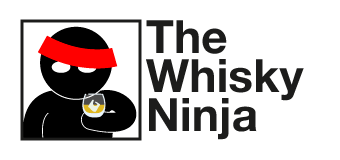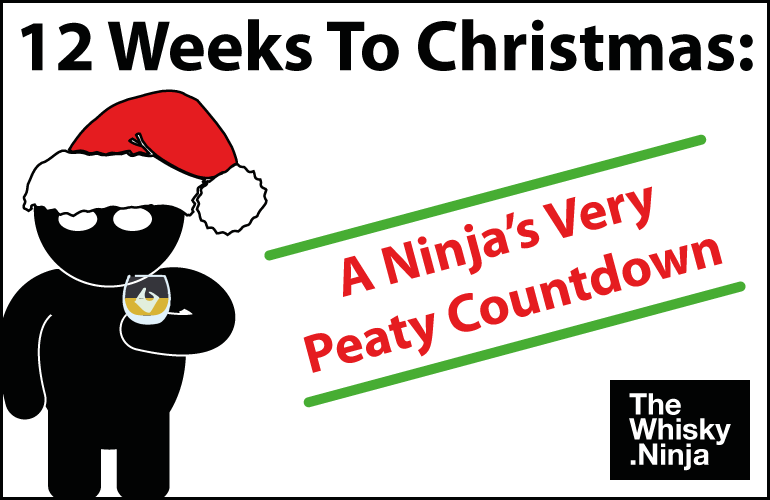I’m not often one to bother penning a post in disagreement with someone else’s opinions – particularly not when those opinions are from someone whose words I find interesting and well thought. Nevertheless I find my self in vicious disagreement with a recent post by AD of Whisky & Wisdom regarding the topic of there being too much information available on most whiskies.
First off I’ll head to the end of the article, for a point that I wholeheartedly agree with: “I’d prefer the producers to overwhelm me with outrageously delicious whisky than to overwhelm me with information”.
In my opinion, the whisky itself should always be first and foremost. If the whisky is no good, nothing else matters one iota. A great whisky that I know next to nothing about is, and always will be, preferable to a terrible or mediocre whisky about which I can find any piece of information that I desire
Back to the main question though; is there too much information available in regards to whisky? In my opinion (I’m probably going to mention my opinion a lot here – as that is all this is, my opinion), no. Absolutely not.
In an increasingly opaque world seemingly controlled by strongmen, cowed public servants, and corporations that are effectively answerable to only a few, there can be no such thing as too much information. I may not know what trade tariff is going to be thrown up tomorrow, or know exactly what an “on water matter” actually means, or have any idea why the cost of a new hospital is commercial-in-confidence, but at least I know where the barley in my Bruichladdich Islay Barley came from, what barrels were used to age the spirit, and whether the geese were particularly fond of this year’s crop – information that I don’t need to know, but information that helps me connect with the whisky better than I do most of this dreary world.
I have to admit, I haven’t been drinking whisky long enough to remember a time when distilleries didn’t want to share and interact with consumers; when they didn’t open their doors welcomingly, when they didn’t have websites choc-full of tasting notes and marketing photos & videos. Perhaps that is why I don’t see these as problems; rather I see them as a wealth of knowledge and an almost intimacy with the brands.
Everybody is different, so perhaps unlike me, there are a lot of people around that are looking up whiskies online before ever tasting them for the first time, before ever tasting other whiskies from a range or brand, before they’ve been able to form the basis of an opinion from the practical application of rolling a whisky over their tongue. This must be it – as apart from some marketing waffle, there doesn’t appear to me that there has been a whole lot more information presented on the front of most bottles of whisky other than perhaps a slightly more descriptive definition of the wood the whisky was aged or finished in.
There’s certainly a lot more information available regarding whisky in general, and each individual whisky release in particular, than there used to be – with absolutely wonderful (in my opinion) tools such as the “transparency recipe code” on Bruichladdich’s website for certain whiskies, or the “recipe details” listed on Compass Box’s website. The thing with these though is that you have to go looking for them; all that information isn’t printed on the front of the bottle (although IIRC Compass Box did try putting it on the back for a short while). If you don’t want to know any of this extra information, you just need to not go looking for it.
One area that the move from printed books to the internet has allowed has been the absolute torrent of people’s opinions that you can now view at your leisure – including by yours truly and Whisky & Wisdom. I won’t disagree that there are undoubtedly websites, blogs, video channels, and more, that we may be better off without; but the opposite is also true – the easy access to information and opinions allows us to broaden our horizons, and in the best cases; find new whiskies to try that we otherwise would remain completely ignorant of. Especially here in Australia (and even more particularly for those of us who do not live in Sydney or Melbourne) – where without this deluge of information we may very well not here about new whiskies from outside the “main” countries of Scotland, Ireland, and the USA; and I have had some delicious whiskies from Sweden, Switzerland, France, Taiwan, and New Zealand, that I doubt I would have heard about if not from reading tasting notes and reviews posted by people who live in those regions. I also wonder how well the whisky industry here in Australia would have taken off if not for the explosion in information and communication? Would I, in Canberra, be enjoying Overeem, Bakery Hill, Black Gate, Riverbourne, Craft Works, Limeburners, or Archie Rose, without the easy access to large amounts of information?
One area AD notes as “information” going over the top is from the various brands’ marketing departments. On this point, my disagreement is not so much an issue with the volume that the put out, but at actually calling most of this drivel information – I’d say most of it is complete waffle encapsulating small tidbits of information. Waffle that AD quite rightly lists as an attempt to “make each frequent new release sound more interesting and intriguing than the last”. It is more entertainment than information.
AD also mentions his observations and blind-tasting experiments in regards to PX casked whiskies – observations that I don’t disagree with. The problem is not that the information is available; the problem is that people are using such information poorly. Most people have not been sufficiently educated on the topics at hand to properly process the information that is available.
Hiding information purely because too many people don’t understand it is not the way forward. I would say that we do not have too much information. What we have is too little education.


